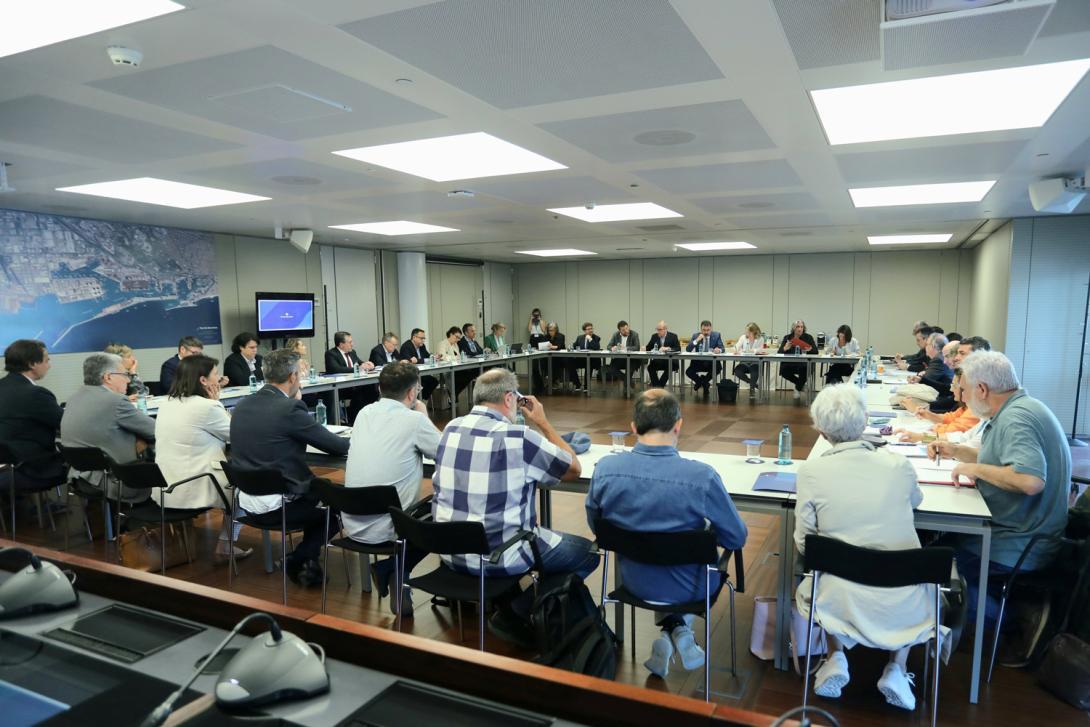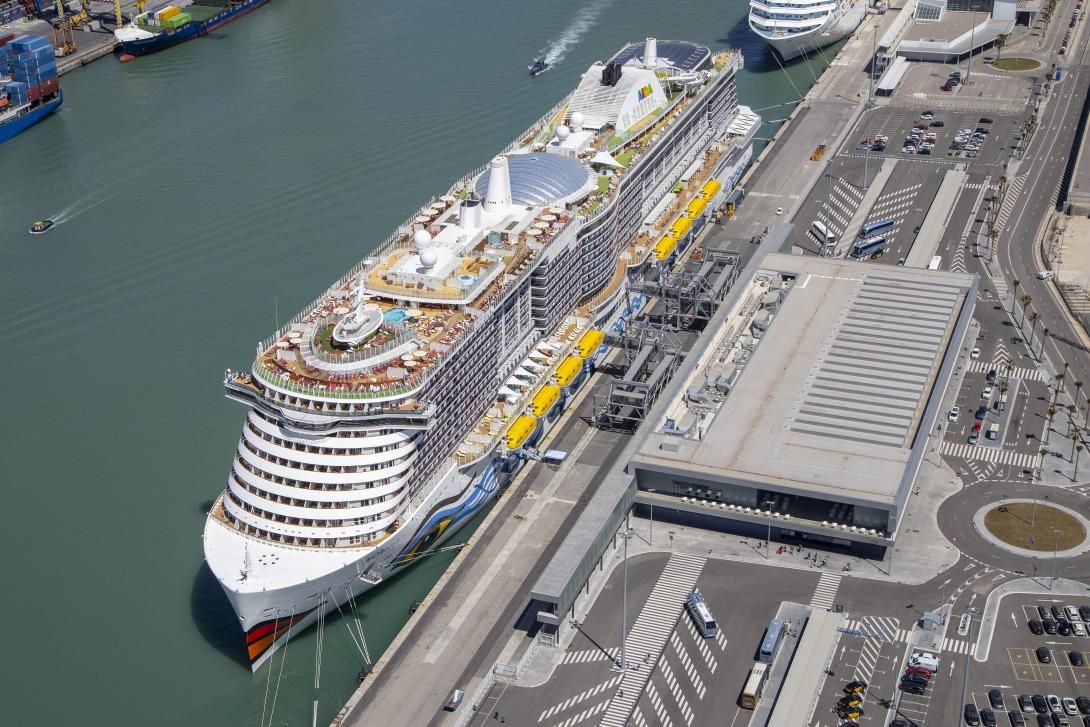Cruise Sustainability Council
The Port of Barcelona promotes a meeting place for various entities and administrations to improve the impact that cruise tourism has on the city.
Wide consensus
The Port of Barcelona has promoted this Council for Cruise Sustainability to work on the impact that cruise tourism has on the catalan capital.
Participating in the Council are the Barcelona City Council; the Generalitat de Catalunya; the Diputació de Barcelona; the State Government Delegation in Catalonia, the Port Community; the CLIA (Cruise Lines International Association); the Air Routes Development Committee (CDRA); Turisme de Barcelona and economic and social entities and the Port Community such as the Barcelona Chamber of Commerce; Foment del Treball; PIMEC; Barcelona Oberta; the trade unions CCOO and UGT; the Federació d'Associacions de Veïns/es de Barcelona-FAVB; the guide associations AGUICAT I APIT or the Institut Metropolità del Taxi, among others.
As can be seen, the Council for the Sustainability of Cruises has a broad consensus among the administrations, entities and organizations involved and works to optimize the management of cruise tourism arriving in Barcelona.
Objectives of the Cruise Sustainability Council





Organization and objectives
The governance of this Council is in charge of a plenary and is structured in several working commissions, focused on environmental, social and economic sustainability.
Thus, three working groups have been created for environmental quality, mobility and economic-social. Each of these groups is led by a coordinator and a technical secretary who are responsible for making a common diagnosis of the impact of cruise ships and deciding on measures for improvement. The working groups propose work dynamics, monitor the different projects and set completion dates.
The technical secretariat of the organism is formed by Pep Hurtado, from the Strategic Office of the Coastal Area, belonging to the Municipal Management of the Barcelona City Council, and Mar Pérez, head of Cruises of the Port of Barcelona.
The main objectives of the council for the sustainability of cruise ships are:
- Improve transparency and communication of cruise activity in the Port of Barcelona
- Generate a space to share and coordinate the different initiatives launched by different institutions
- Reduce the negative environmental and social impacts of cruises
- Increase the social and economic return of the sector on the city and its hinterland
- Strengthen the link between cruise companies and the business, training and employment fabric of the city
In the area of social sustainability, the actions are focused on the management of cruise passengers, promoting a model based on the leadership of cruise tourism in the base port, which has already begun with the limitation and relocation of cruise terminals, and on the commitment to the deseasonalization of the activity.
Another very relevant line of work is the reduction of congestion in the most tourist areas of the city; the diversification of tourist assets and the generation of local employment in the sector.
In the case of environmental sustainability, actions are aimed at reducing cruise ship emissions; promoting low-emission ships and the energy transition to the Port; optimizing water management; transforming waste into biogas; improving urban mobility and working to promote biodiversity.
With respect to economic sustainability, the measures proposed by the Port of Barcelona refer to the increase in the arrival of base port cruises; the generation of business in the country's productive sectors and the facilitation of innovation projects. In this regard, the director of Economic Analysis of the Barcelona Chamber of Commerce, Carme Poveda, announced that this organization is conducting a study commissioned by the Port of Barcelona, Mercabarna and CLIA (Cruise Lines International Association) on Opportunities for the Catalan agri-food industry in the cruise market.

Proposal of 50 actions
With the promotion of this Council for the Sustainability of Cruises, the Port of Barcelona leads the coordination of initiatives aimed at improving the sustainable development of the cruise activity together with the administrations, the Port Community and the economic and social fabric.
This tool gives continuity to the pact signed in 2018 between the Port and the Barcelona City Council that reduces the number of cruise terminals to seven. The implementation of this 2018 agreement involves about 10 years of work and, therefore, will not end until 2027, with the closure of the cruise terminal located at the Barcelona Sud wharf.
This agreement involves the investment of 265 million euros of public and private investment (adaptation of the Adossat dock, construction of the new terminals, elimination of the old ones, etc.) and incorporates elements of improvement in cruise activity at the Port of Barcelona, facilitating the increase in base port operations.

Base port operating model
It should be remembered that the Port of Barcelona is the European and Mediterranean leader in the position of base port, i.e., where cruise passengers start and/or end their trip, the segment that brings the most benefits to the city. In addition, work is being done to transform part of the current cruise traffic into ships in which Barcelona also acts as a base port for part of the cruise passengers, thus increasing its leadership as a port of embarkation and disembarkation of tourists.



